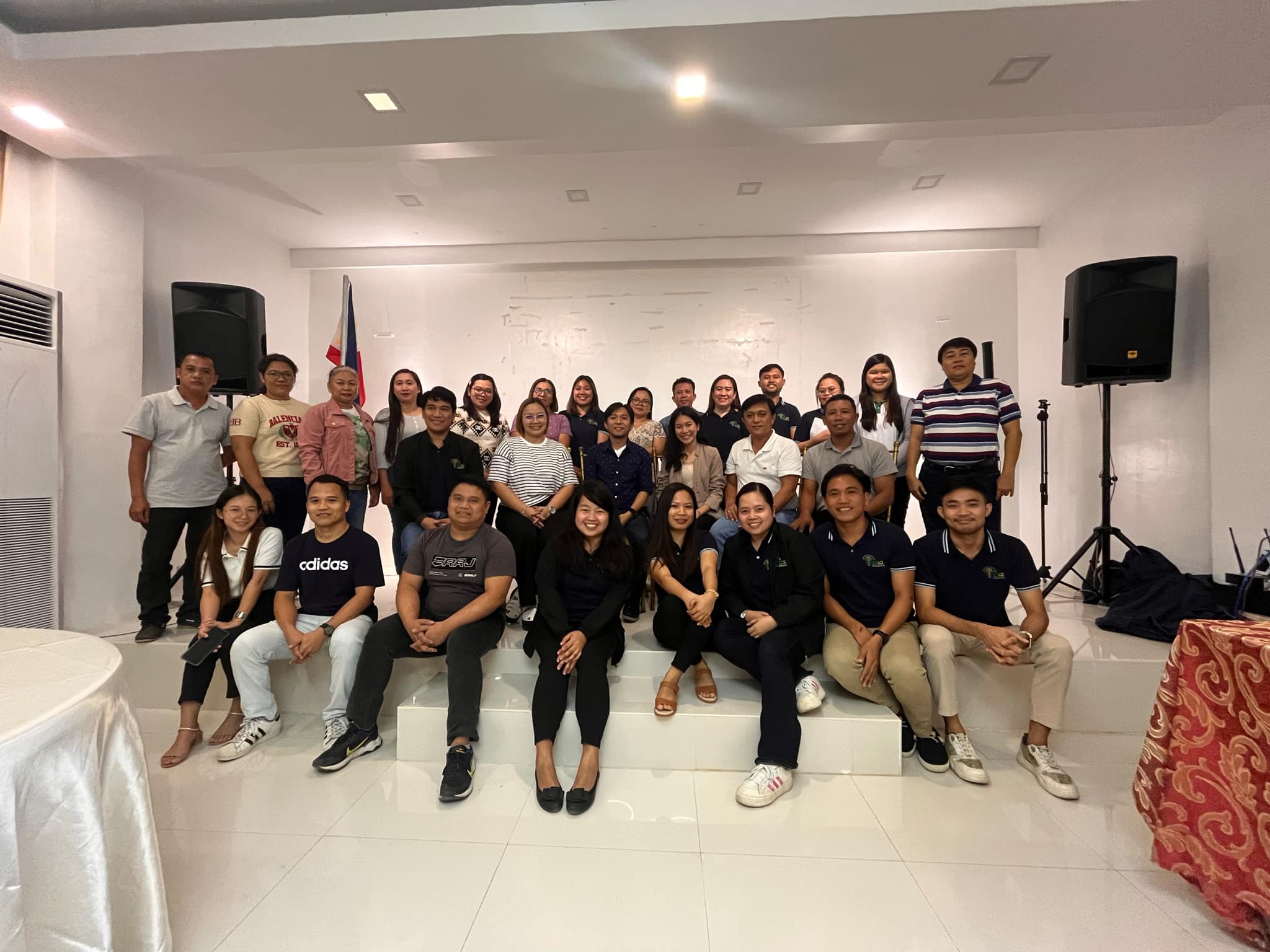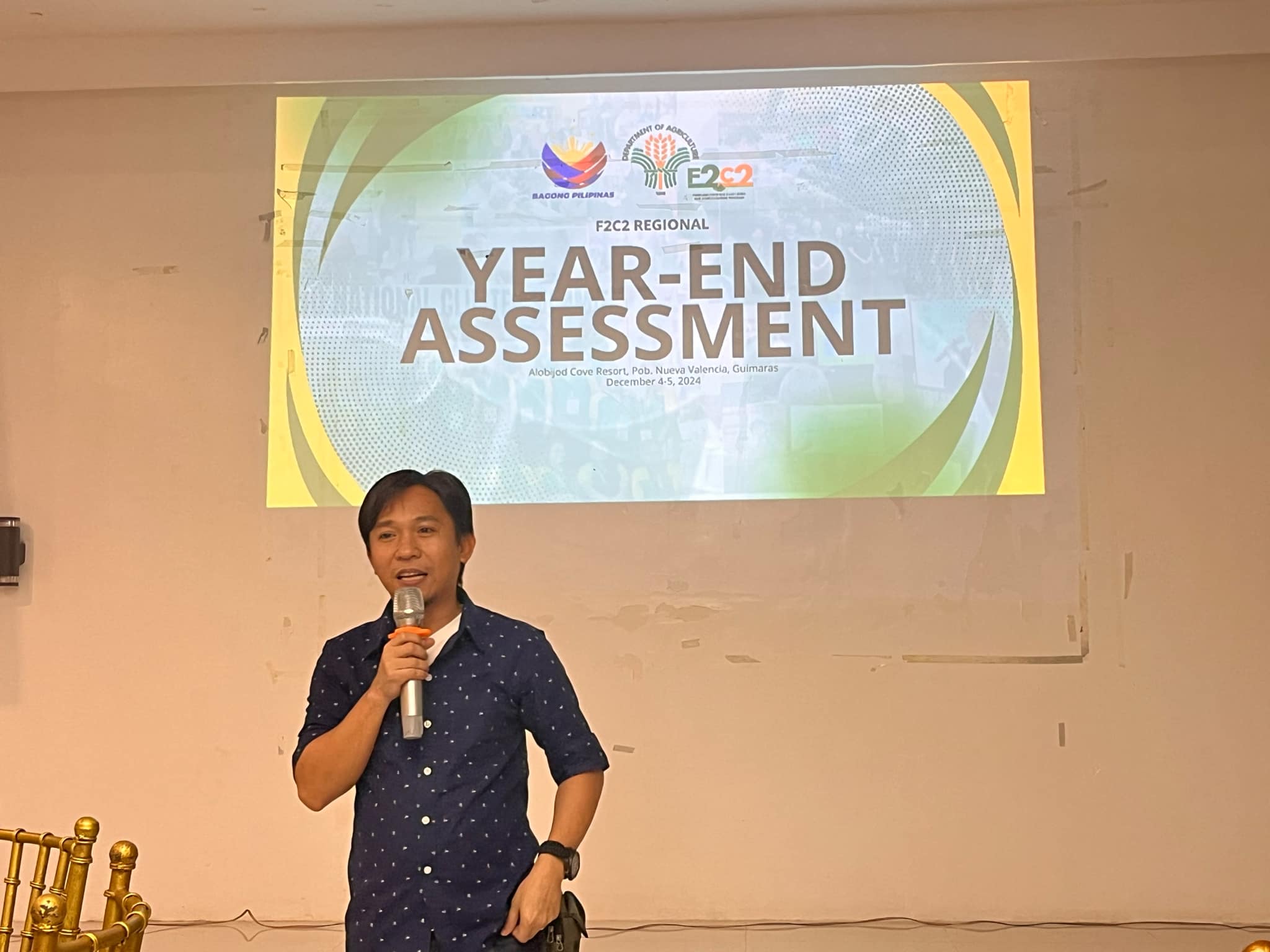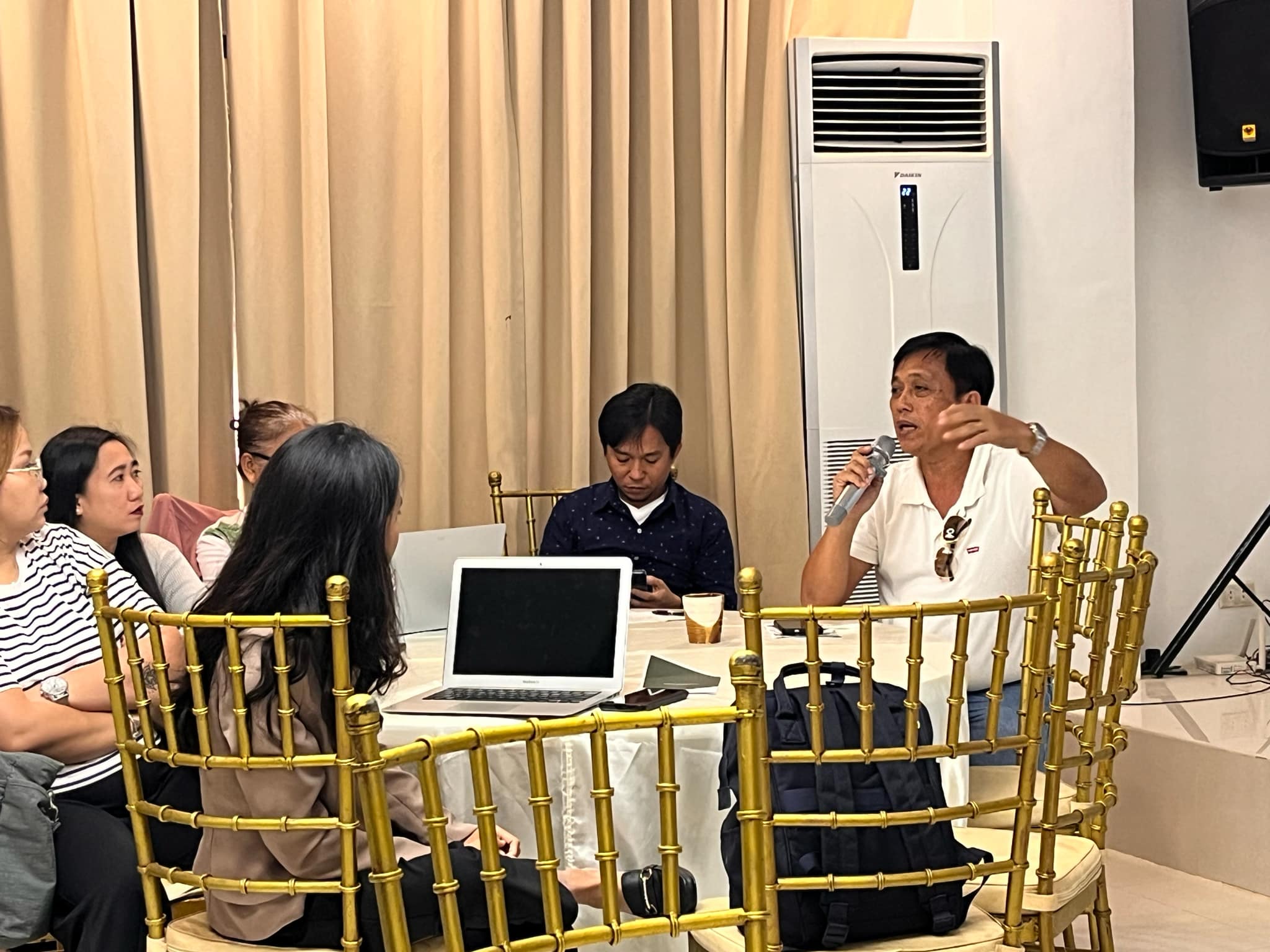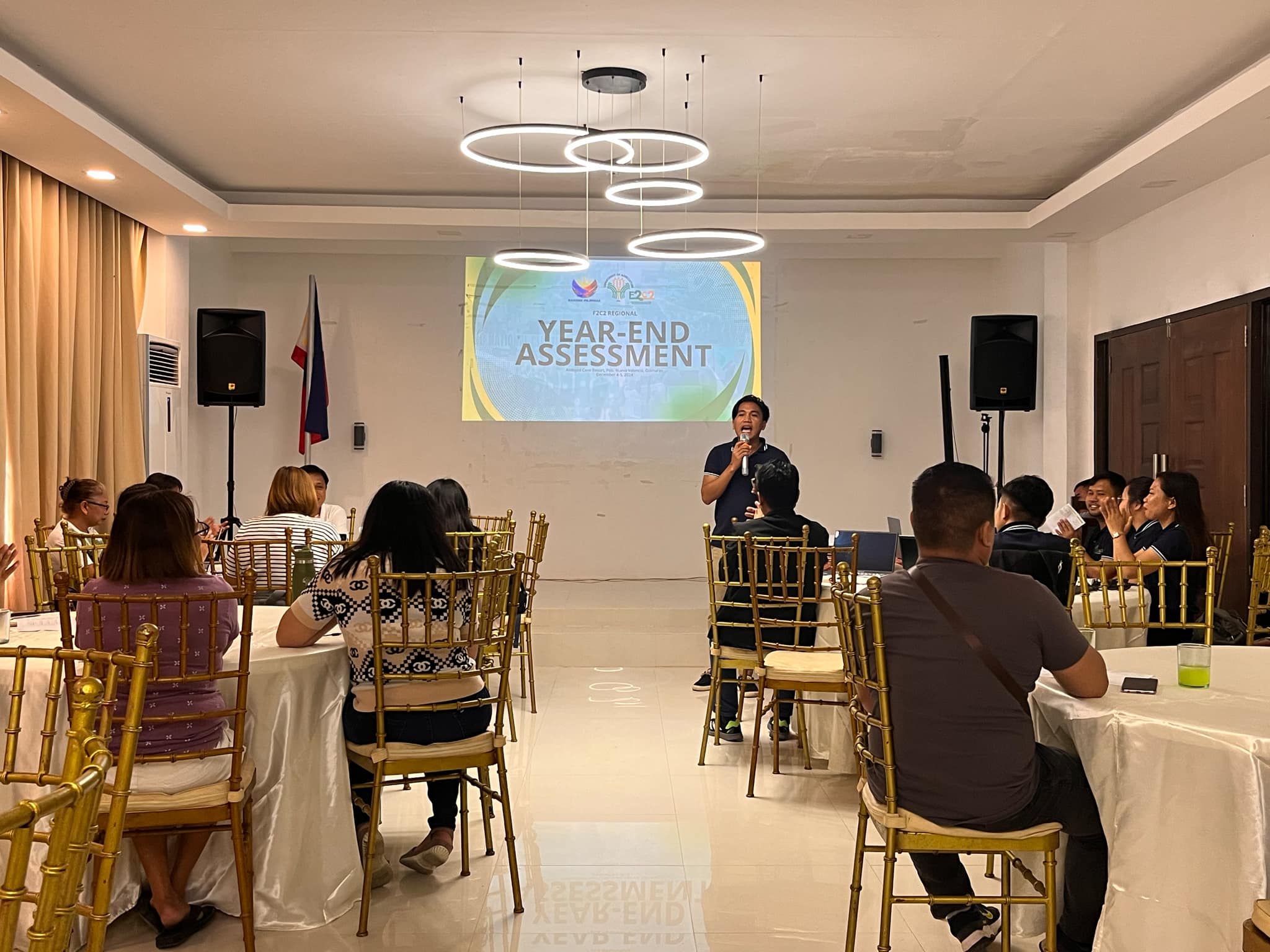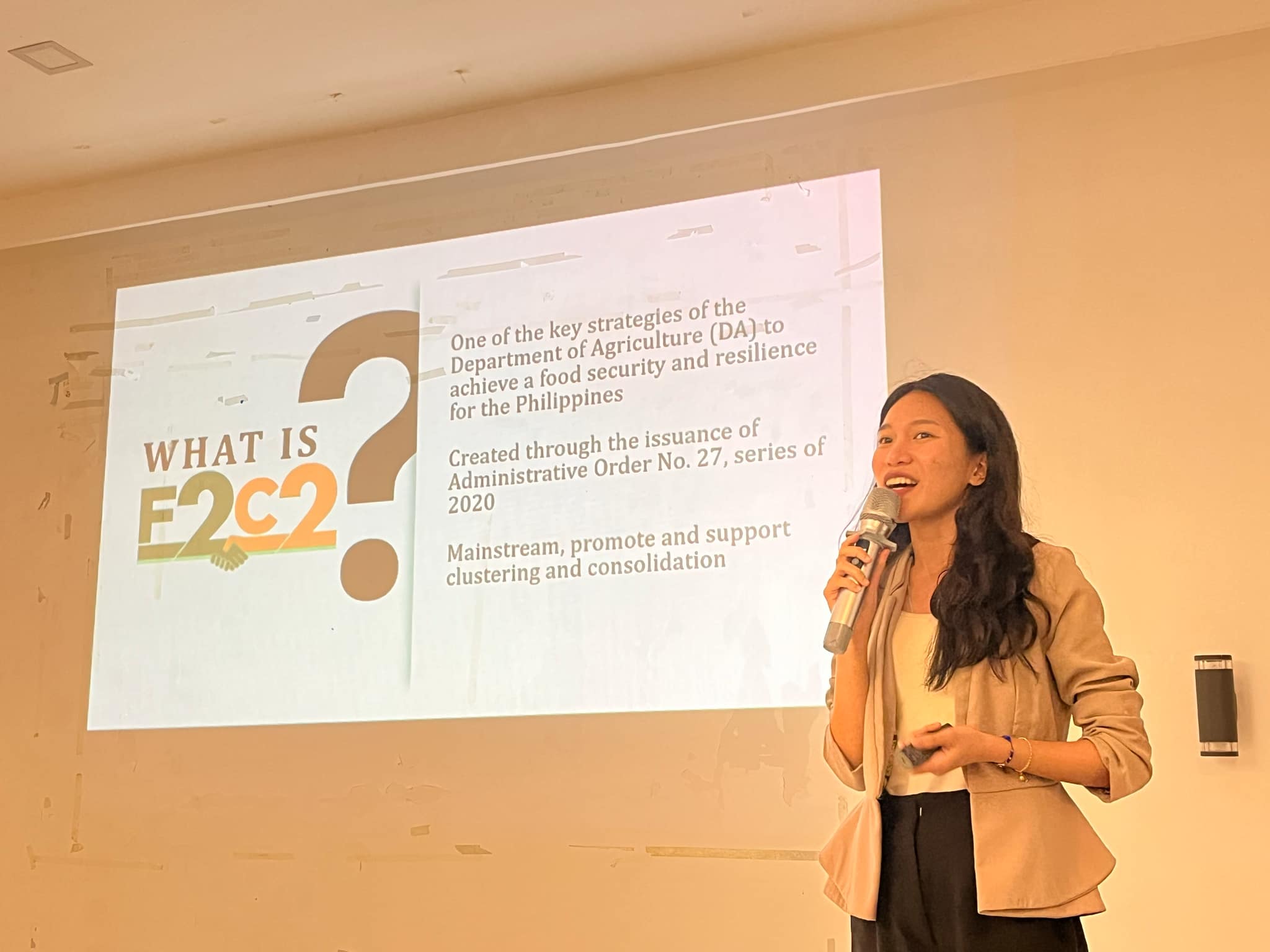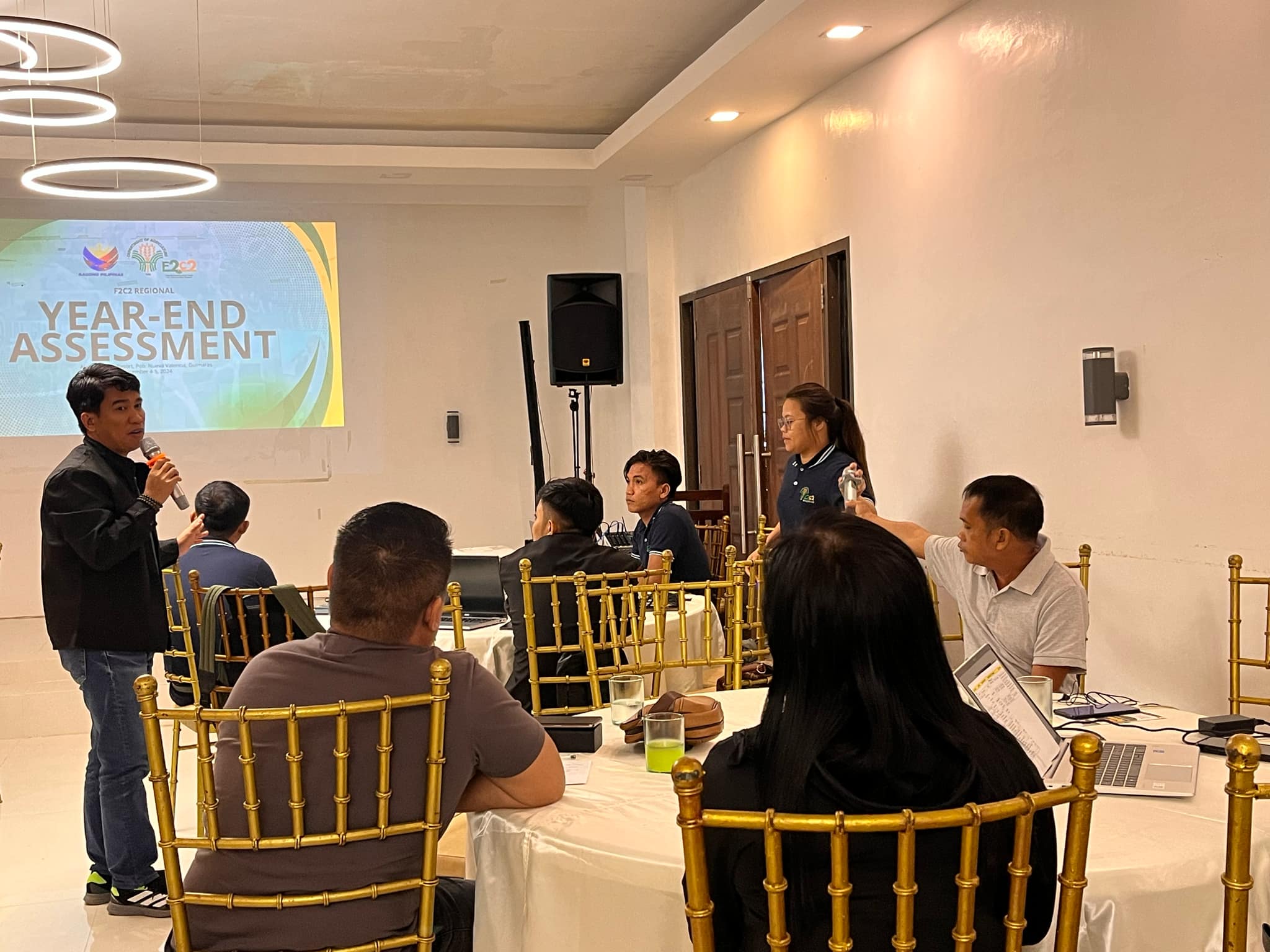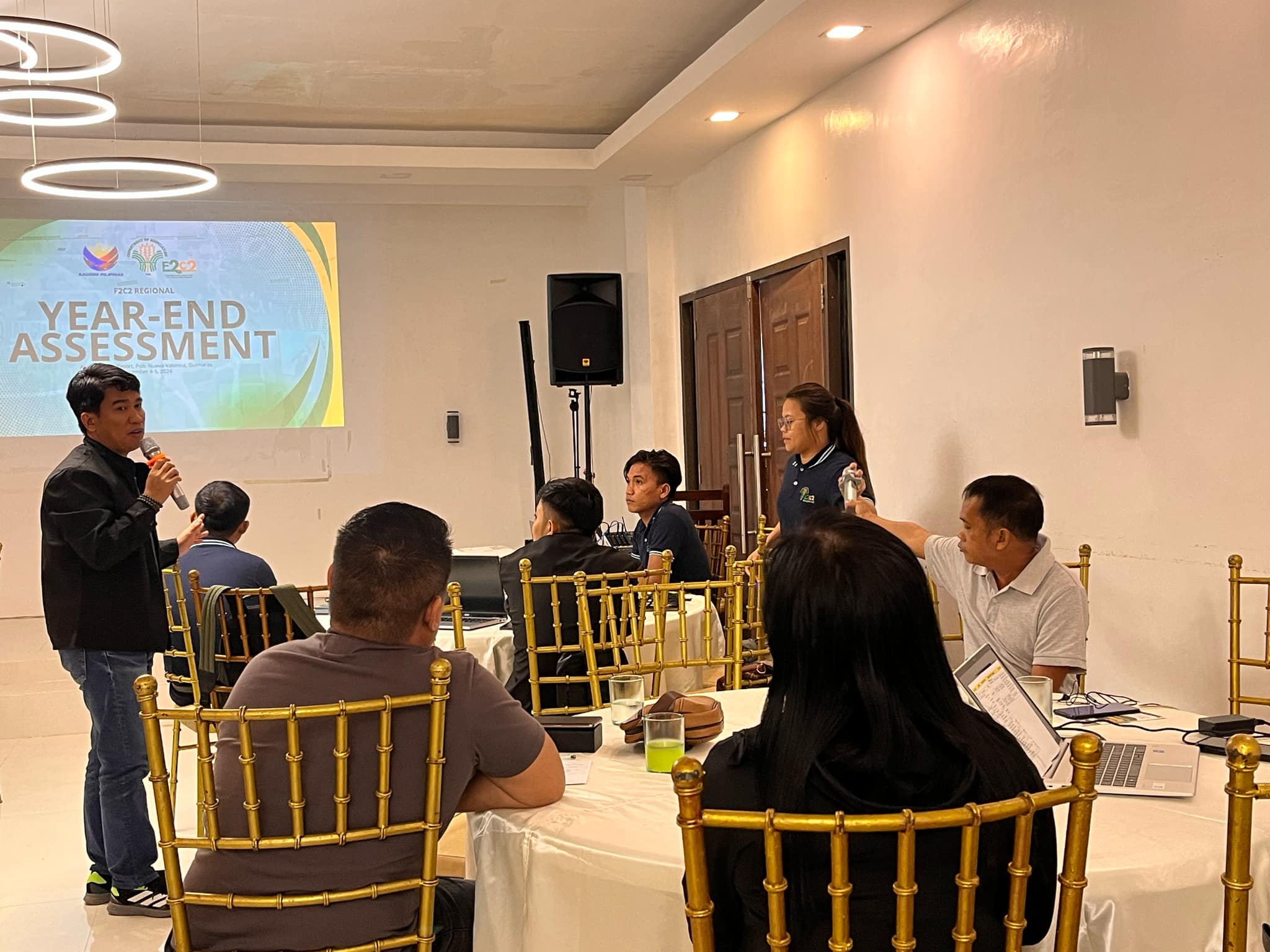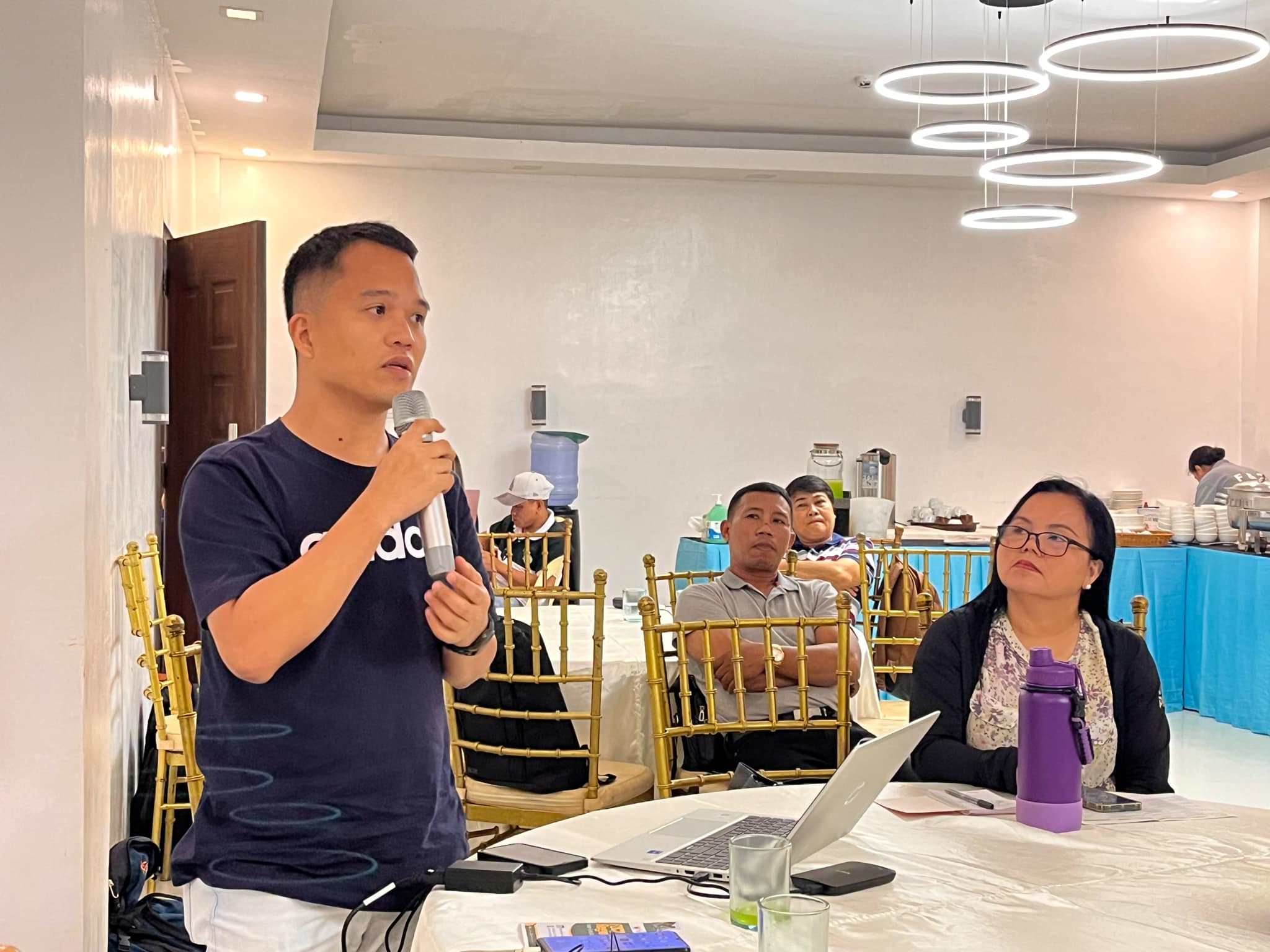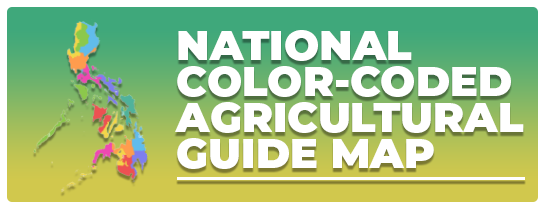DA-WV F2C2 Program conducts Year-End Assessment in Guimaras
Posted by: RAFIS DA6 | Posted at: December 12, 2024
The Farm and Fisheries Clustering and Consolidation (F2C2) Program of the Department of Agriculture (DA) Western Visayas conducted its year-end assessment on December 4-5, 2024, in Guimaras. The event brought together key stakeholders to review the program’s accomplishments and discuss strategic directions for the coming year.
Field Operations Division Chief Ryan Rasgo opened the event with an inspiring message, emphasizing the important role of collaboration and innovation in driving agricultural transformation across the region.
Senior Agriculturist and Enterprise and Marketing Development Unit (EMDU) Focal Person Clark Melendrez presented the IDU’s key accomplishments for the year, underscoring significant progress in organizing farmer groups and building their capacities; followed with a detailed report on EMDU’s achievements. His presentation highlighted efforts to enhance farmers’ entrepreneurial skills and expand market access for their products, contributing to greater income opportunities for smallholder farmers.
Updates from the F2C2 National Program Management Office (NPMO) were also shared, outlining the program’s alignment with national agricultural goals and future directions. Additionally, the accomplishments of the ADB-PRIMEX-supported project were highlighted, showcasing its contributions to the program’s success.
The F2C2 Program of DA-WV targets the increase of agricultural productivity and sustainability by clustering smallholder farmers, enabling them to pool resources, improve efficiency, and integrate more effectively into markets. This initiative is part of a broader national strategy to modernize the agriculture sector and enhance farmers’ competitiveness.
Among its significant achievements in 2024, the program facilitated the formation of 55 organized and strengthened farm clusters focusing on crops, livestock, and organic agriculture. These clusters underwent a series of trainings for cluster development, equipping farmers with the skills and knowledge needed to operate cohesively and efficiently. Furthermore, 8 clusters have been successfully linked to institutional buyers, creating stable market opportunities for their products. These efforts have fostered stronger collaboration among farmers and encouraged sustainable agricultural practices. A key milestone was the hosting of a Business-to-Business Matching event, Trade Fair, and Investment Forum in August, which successfully connected farmers with investors and markets to boost their profitability. The program has also supported market integration by assisting farmers with business registration and advancing product development and marketing strategies.
Despite these successes, challenges remain. Fragmented agricultural production due to small farm sizes, inconsistent market access, and difficulties in attracting reliable investments persist. Strengthening the organizational capacity of farmer groups is also a critical need to ensure long-term sustainability and operational efficiency.###


